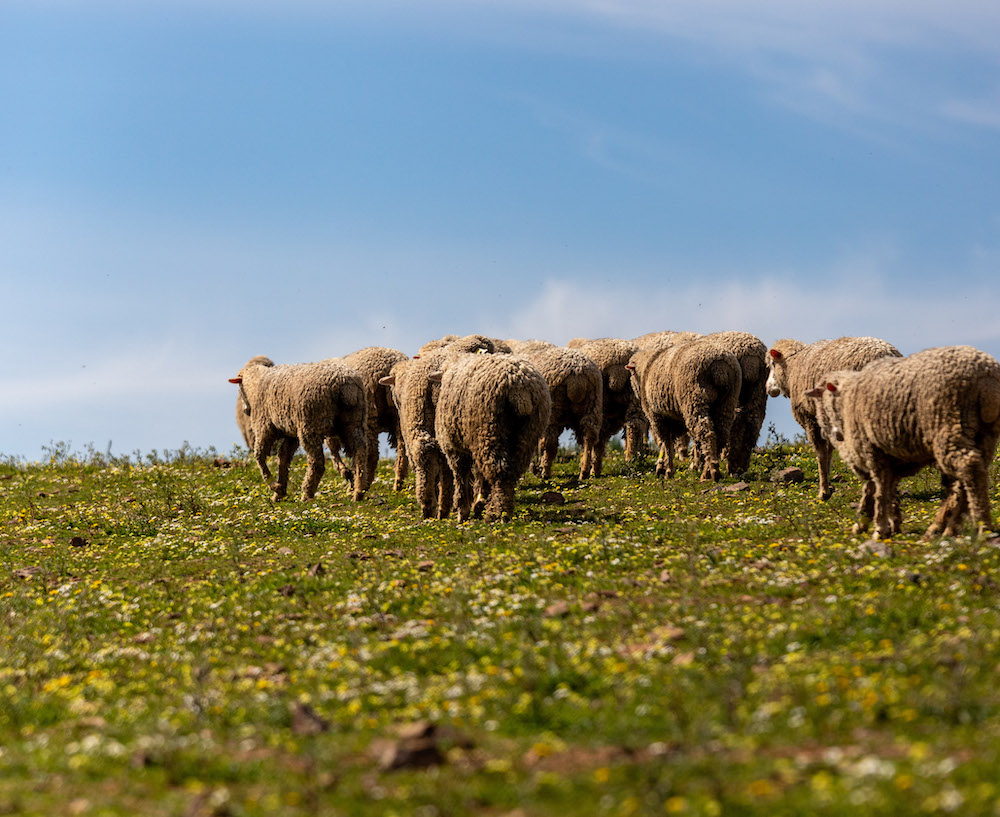In the textile industry, initiatives like Wooldreamers demonstrate that it is possible to recover traditions, invest in natural materials, and generate a positive impact on both the environment and local communities. We had the pleasure of speaking with Ramón Cobo, founder of Wooldreamers, a project born from the desire to enhance Spanish wool and promote a more ethical and sustainable textile industry. With a deep connection to wool tradition and an unwavering commitment to traceability and animal welfare, Ramón has made Wooldreamers a reference in the regenerative fashion movement.
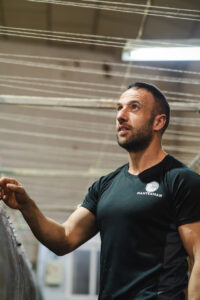
Ramón Cobo
How did your passion for natural fibers, and wool in particular, come about?
My passion for natural fibers, especially wool, dates back to my childhood. My earliest memories are tied to the hard work of my family: my father, my uncle, my grandfather, and the endless hours they spent washing or spinning wool. I remember my grandfather’s stories about how they used to make wool blankets, mixed with the summers my sisters, cousins, and I spent sorting fleeces, helping with the family work. These memories, along with the love and respect for this fiber and this work, have profoundly shaped my connection to this craft.
What key moment led you to create Wooldreamers, and how did your early experiences in the textile industry influence this decision?
Wooldreamers was born from a need I detected in the textile industry, particularly in the wool sector. My family has fought hard to keep this profession alive: my father, my uncle, my grandfather, and even my grandfather’s uncle worked to dignify a fiber and trades that have been cultural and socio-economic pillars in Spain. However, the mass production of synthetic fibers, mainly generated in countries where working conditions are questionable and social inequality is promoted, has devalued wool and its trades.
Previously, wool was a profitable product for breeders, and the trades related to its processing were dignified and sustainable. Today, however, wool has become a by-product that generates economic losses for breeders, and trades like washing or spinning local wool are struggling for survival.
“In Spain, there are only three wool-washing companies left fighting for their existence, and barely a dozen dedicated to spinning local wool.”
This situation led me to create Wooldreamers, a project focused on visibility, dignity, and the enhancement of not just a fiber, but all the trades surrounding it. If we allow this know-how and culture to be lost, it will be very difficult to recover them in the future.
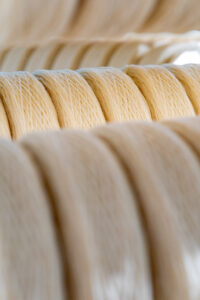
During your research, you discovered that Spanish wool was often considered waste. What actions are you taking to change this perception and add value to local wool?
Through a friend who does natural dyeing, I discovered that there was a community very connected to craftsmanship and hand weaving. I observed that many of the wools available were actually acrylics or imported wools, but there was very little local wool. This community showed me that they appreciate not only the quality of a product but also its culture, as well as the importance of protecting what is ours and taking care of the planet.
With many learnings that I am still pursuing, and the support of this community, we launched our first collections of knitting yarns, using wool from local shepherds. Our goal has always been to give value and dignity to wool and all the trades involved in its production. Thus, we began our journey, and what started with two collections and three farms has now become a community of over 25 supplier families. Despite this progress, there is still much to be done.
Wooldreamers places great importance on sustainability and traceability. How do you ensure that these values are present in all your production processes?
I think we need to go beyond the basic concept of sustainability. For raw materials to have a future, they must generate fair profitability throughout the value chain. If we produce a sustainable product, but it causes losses at one stage of the chain, it is not truly sustainable.
“At Wooldreamers, we work to create a triple impact sustainability: social, environmental, and economic.”
Although this is often difficult due to market inequalities, we seek this sustainability in our yarns. We have certifications like GOTS and OEKO-TEX for the environmental aspect, and we work with farmer associations that validate our commitment, benefiting a total of 28 families. Moreover, in our WOOL4LIFE brand of local wool products created with Wooldreamers yarns, we implement new technologies to take this traceability a step further.
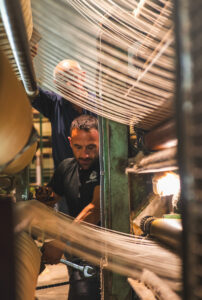
What do you think about the lack of incentives and protection for local products compared to foreign products, and how does this affect brands like Wooldreamers?
It is a true injustice. The textile sector, primarily based on synthetic fibers, operates with opaque processes that foster inequality and pollution. However, they have the same rights, taxes, and duties as those in sectors that promote natural fibers, regenerative systems, and social respect.
From my perspective, every fiber and production process should be taxed based on the positive or negative impact it generates for society and the planet. If that were the case, we would not see overproduction or the massive consumption of disposable textiles. If urgent measures are not taken to protect traditional trades, when society and the environment demand the conscious use of natural fibers, there may no longer be people with the necessary know-how to produce them.
In our country, tourism, gastronomy, and all sectors are heavily promoted. I believe that since Spain is the largest producer of wool in the EU and this could be an economic powerhouse, there should be more involvement in this cause. I am talking about all political parties and social actors, regardless of their ideology. This is a social, cultural, and economic cause that goes beyond political signs.
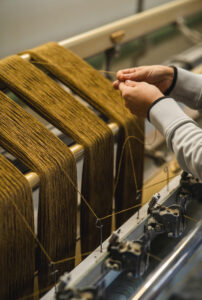
What are your long-term goals for Wooldreamers, and how do you see the role of the company in the future of the global textile industry?
My long-term goals are to create an even larger community that works towards a fairer and more respectful future in the textile sector. I seek to recover the social values and respect for resources that our ancestors had, integrating them with the tools and opportunities of the future. Wooldreamers wants to be an example of how to combine tradition, sustainability, and innovation in the textile world. I hope that the currently 28 local wool producers we work with can become many more in the future.
Words : Ramón Cobo / Sofía Yang Mao
Photos : Wooldreamers
More information about sustainable fashion in our magazine

